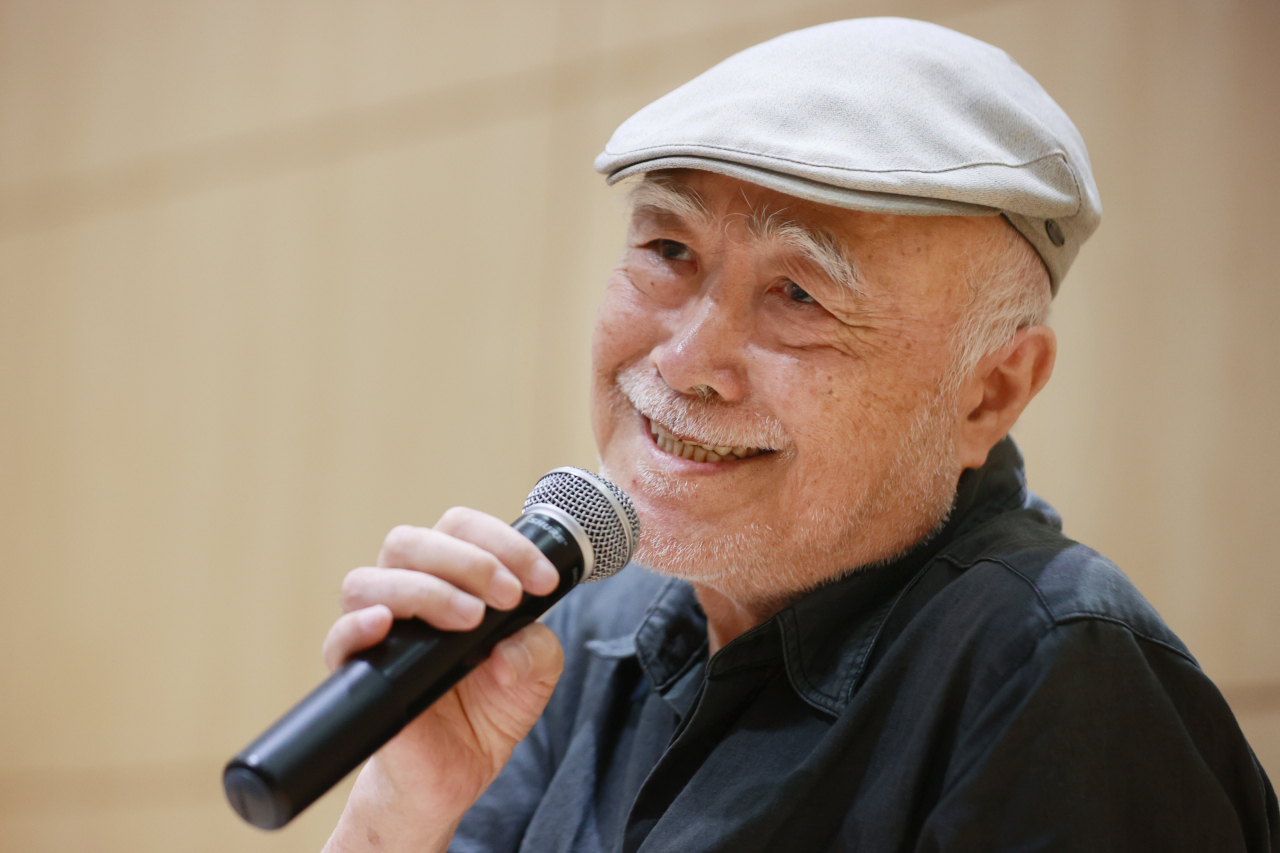Jeju-born writer revisits island’s tragedy in epic novel ‘Oh, Jejudo’
By Hwang Dong-heePublished : July 20, 2023 - 20:18

Jeju-born writer Hyun Ki-young said he penned his three-volume novel, “Oh, Jejudo,” as an homage to the spirits of the April 3 Incident.
On April 3, 1948, when Hyun was 6 years old, Jeju islanders began protesting against US military-led rule after Korea's liberation from Japan's colonial rule (1910-1945). The then-government distorted the uprising as a communist riot and brutally massacred an estimated 30,000 civilians, roughly 10 percent of the island's population, in the years of armed crackdowns that followed.
"You can say that I wrote this book at the command of the spirits of the 4.3 Incident. I wrote it with the determination to make a proper tribute to the 30,000 victims,” said Hyun during a press conference held at the Changbi Seogyo Building in Mapo-gu, Seoul, on June 29.
The 82-year-old author said it took him four years to complete this historical novel.
Set in the coastal town of Jocheon-ri on Jeju Island, "Oh, Jejudo" narrates the modern and contemporary history of Jeju, spanning from the Japanese colonial period to the tragic events of the 4·3 Incident. The story is told through the voice of Ahn Chang-se, a survivor of the tragedy, who shares his experiences with the younger generation.

Hyun recounted several harrowing nightmares he had after being detained, tortured and imprisoned by the military regime’s security forces due to his previous work, “Aunt Suni” (1978). The book was once banned for 14 years.
"I wrote three short stories about 4·3, including 'Aunt Suni,'” and I thought that would be enough. However, I had these recurring dreams of being tortured, just like when I was tortured at the security office,” Hyun said.
“The one tormenting me in those dreams was none other than the spirits of the 4·3 Incident. They asked me, 'What did you do to escape the clutches of 4·3?”
This compelled the author to return to history once again.
In "Oh, Jejudo," Hyun explores the stormy and tumultuous modern history of Korea and Jeju Island. Through vibrant characters and a powerful narrative, the author portrays the aspirations and frustrations of the young generation, who dreamed of constructing a new society, while also offering solace to the spirits who suffered from state-inflicted violence.
While tackling the darkest aspects of modern history, such as ideological conflicts, armed uprisings and massacres of innocent civilians, the writer said he had to add some elements of romance to alleviate the horrors.
“The 4·3 Incident was a catastrophe. It was so devastating that I couldn’t describe it as it was. So I intertwined stories of youthful passion, romance and love. Even so, it remains a painful subject, making it challenging for those seeking a light reading,” he said.
“But if there is a wish, I would like the readers to slowly savor this work, which I crafted with utmost care."
In addition to portraying the stories of young people, "Oh, Jejudo" offers affectionate descriptions of the island’s landscapes, seas and its people, interweaving them with island legends, folk tales and shamanic verses, further enriching the novel.
The Korean title of the novel, "Jeju-douda," comes from the Jeju dialect which means, "(It's) Jeju Island." In the book, when the 38th Parallel was established, and the repatriates from Japan are asked by the US Military Government which side -- South or North -- they preferred to go to. The characters reply “Jeju-douda.”

The writer said he would like to write stories about mother nature from now on.
"I have paid my tribute to the spirits of 4.3, and I think have fulfilled my duty,” he said.
“I'm going to write about trees and the relationship between humans and nature. In the midst of urban grayness, we often forget that humans are an integral part of the natural world. I intend to explore this concept in my upcoming works."




















